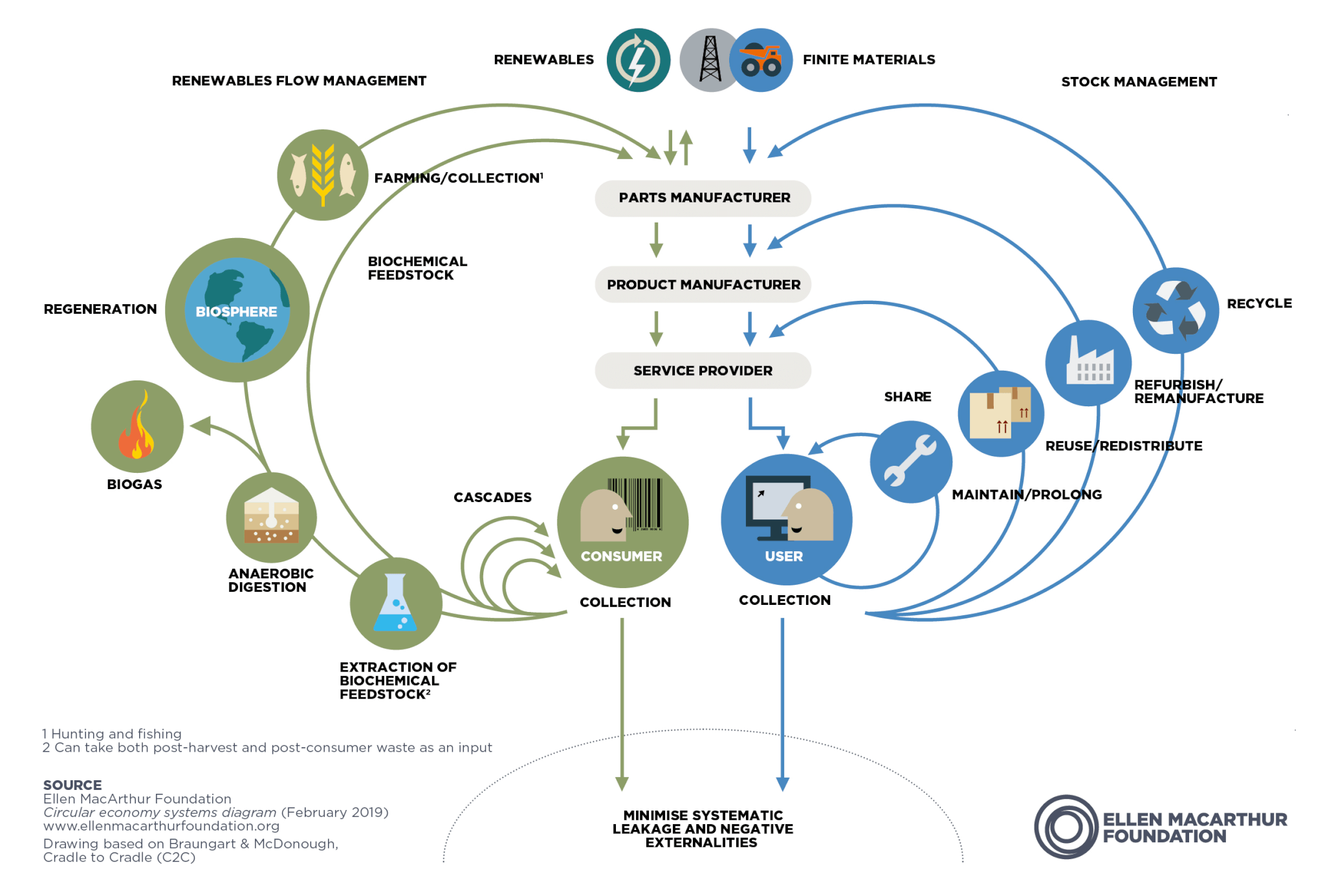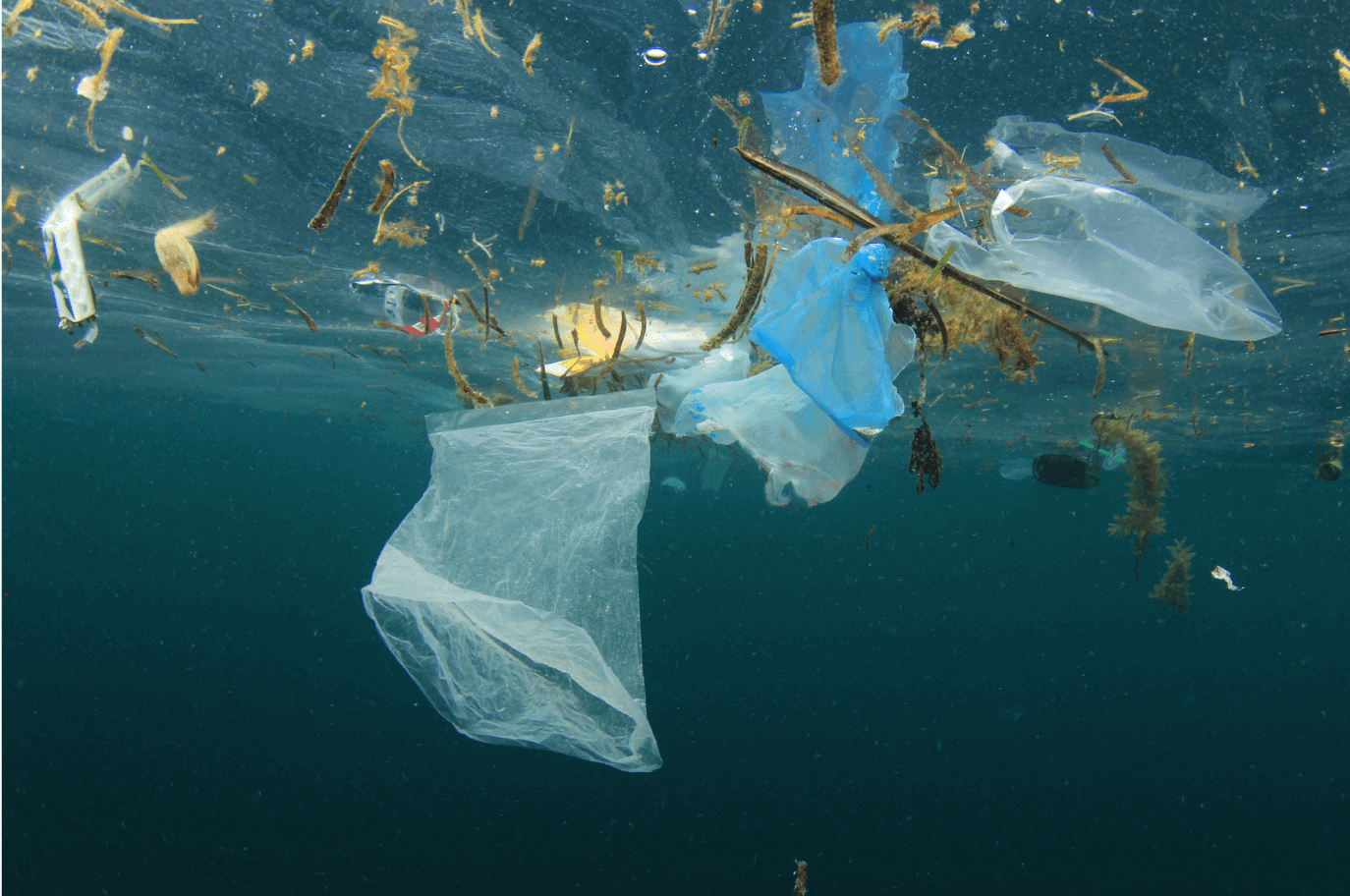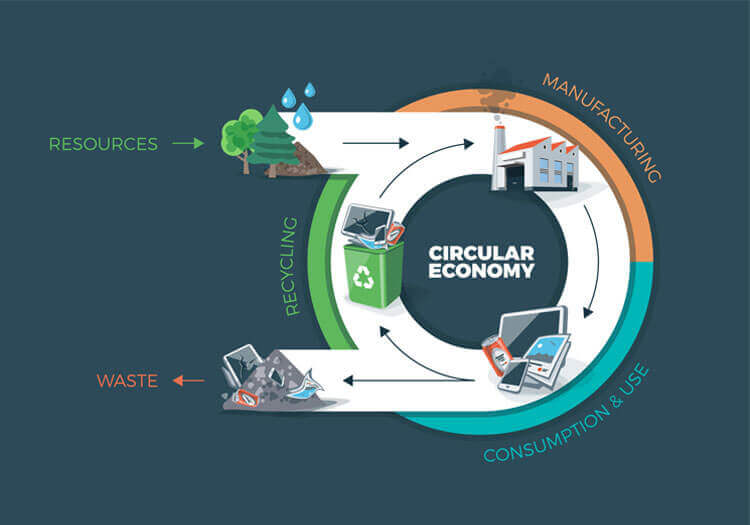Learn about the circular economy and find out how RSP’s involvement with the Ellen MacArthur Foundation benefits the company and the world.
RSP recently joined the Open Community of the Ellen MacArthur Foundation, an organization committed to solving the big problems we face today: climate change, pollution and waste. Read on to learn more about how we plan to leverage our participation in a community of fellow manufacturers and makers working toward a more sustainable future.
What Does the Ellen MacArthur Foundation Do?
The mission of the Ellen MacArthur Foundation is to “achieve the transition to a circular economy” and to “develop and promote the idea of a circular economy” in collaboration with leaders in business, academia and public policy, among others, to implement it on a global scale1. The organization focuses on topics such as fashion, biodiversity and cities as they relate to the circular economy.
What Is a Circular Economy?
Most people know the three Rs by heart: Reduce, Reuse, and Recycle. The concept of the circular economy takes this even further. Instead of focusing on a product’s end of life after it’s been manufactured, the circular economy considers a product’s end of life during the design process, ensuring that all components of a product fit into one or both cycles of reuse: biodegradable or technical.

The biodegradable cycle is a process in which renewable resources (e.g., cotton, timber, paper, and agricultural products) are grown, consumed and then either repurposed or composted so that they can be cycled back into the economy. The technical cycle focuses on processing finite resources that are extracted from the earth or manufactured, such as metals and plastics, which are then repurposed or recycled into new products. Ideally, the circular economy eliminates waste before it has a chance to enter the waste stream, diverting it into useful resources rather than into landfills and waterways.
RSP’s role as a manufacturer is twofold: we reduce our footprint by using recycled ocean plastics and by implementing more energy-efficient manufacturing methods whenever possible. According to Plastics for Change, recycling one ton of plastic saves 5,774 kilowatt hours of energy, enough to charge a Tesla more than 100 times!
How Will RSP Be Involved?
By joining the Open Community, RSP aims to grow the knowledge base for manufacturing for the circular economy. We plan to share our expertise in ocean plastics and sustainable manufacturing with our fellow community participants while tapping into theirs.

In addition, our participation enables us to be better positioned as leaders, to educate others about and bring awareness to the urgent need to preserve the environment. By reducing waste in our own processes through reuse and recycling and by practicing more sustainable design and manufacturing, we continue to work toward a cleaner, healthier future for our community and beyond. Contact us to learn more about how to incorporate ocean plastic into your product.
Video: Ellen MacArthur on the Basics of the Circular Economy
References:
- “About Us,” Ellen MacArthur Foundation, accessed September 29, 2022, https://ellenmacarthurfoundation.org/about-us/what-we-do.

